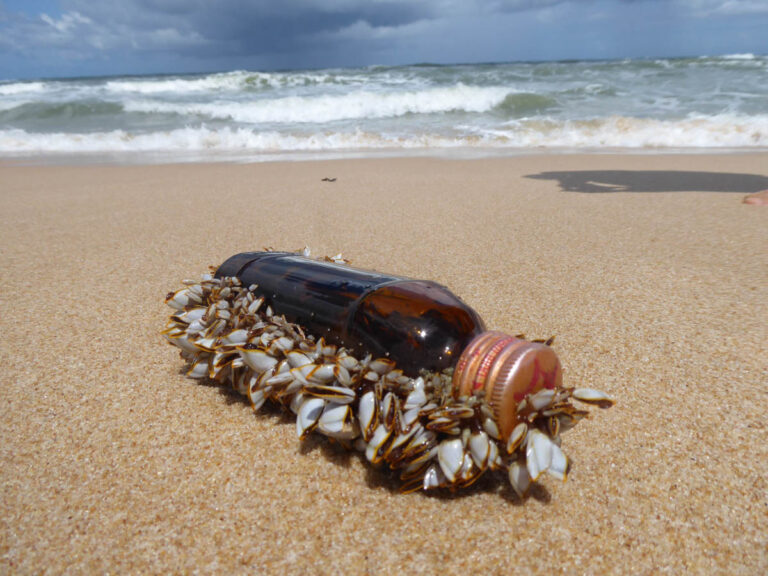Every September thousands of people across the UK head to the coast to take part in the Great British Beach Clean. This year’s event will take place between Friday 20th – Sunday 29th September, where people of all ages take to the sand to remove paper, plastic, fishing line and other marine debris in an attempt to rid our picturesque coastline of pollution.
The campaign, hosted by the Marine Conservation Society UK, sees citizen scientists log the litter they collect to feed into the International Coastal Clean Up database, which helps to inform conservation initiatives and enables environmental organisations to campaign for change.
Young environmentally conscious students like Bonnie Stevenson aren’t afraid to get their hands dirty in the name of conservation and environmental health. Eleven-year-old Bonnie has been combing the beaches around her home town of Plymouth to ensure plastic pollution and other litter doesn’t find its way back into the sea. “I think making sure the litter that has been washed ashore doesn’t return to the sea is a great way to spend my free time. If I can prevent just one animal from injuring themselves, I will be proud of what I have achieved” Bonnie says in an interview on a South Devon beach.
It is said between 10-12 million tons of plastic finds its way into our oceans every year and is recorded to affect over 700 marine species with over 17% of these species being on the IUCN Red List, meaning they are endangered or threatened with extinction. It has also been reported that by 2050 plastic will likely outweigh all of the fish in the sea and is one of the five main drivers of the biodiversity crisis.
Most of the plastic we find in the ocean today comes from land. Usually starting in rivers that then flow down to the sea, this waste is then picked up by rotating ocean currents, called gyers and can be transported anywhere in the world. As a result, the plastic groups up into large garbage patches found at the centre of the oceans gyers. The largest of these patches is the Great Pacific garbage patch, found between Hawaii and California, which is three times the size of France, containing an estimated 1.8 billion pieces of floating plastic.
But there are things you can do to help turn the tide on plastic pollution. Recycling may come naturally to some but to others it can be a confusing concept as regional regulations around what plastic can and cannot be recycled, vary dramatically. The best thing you can do to recycle effectively is to research which materials and types of plastics your area will recycle and to follow signs on packaging. You can also reduce your single-use plastic consumption by opting for reusable products such as coffee mugs, shopping bags and water bottles. It is also important to be aware that some products contain micro-plastics which can be harmful to the environment. Most microplastics are caused as a by-product of larger plastic break down. A good way to minimise your impact is to avoid using items that intentionally add microplastics such as glitter and wet wipes.
By signing petitions, supporting charities and joining campaigns such as the Great British Beach Clean, that tackle the issue of plastic pollution you can use your voice to help reduce plastic waste and create a healthier environment and a brighter future for us all.








